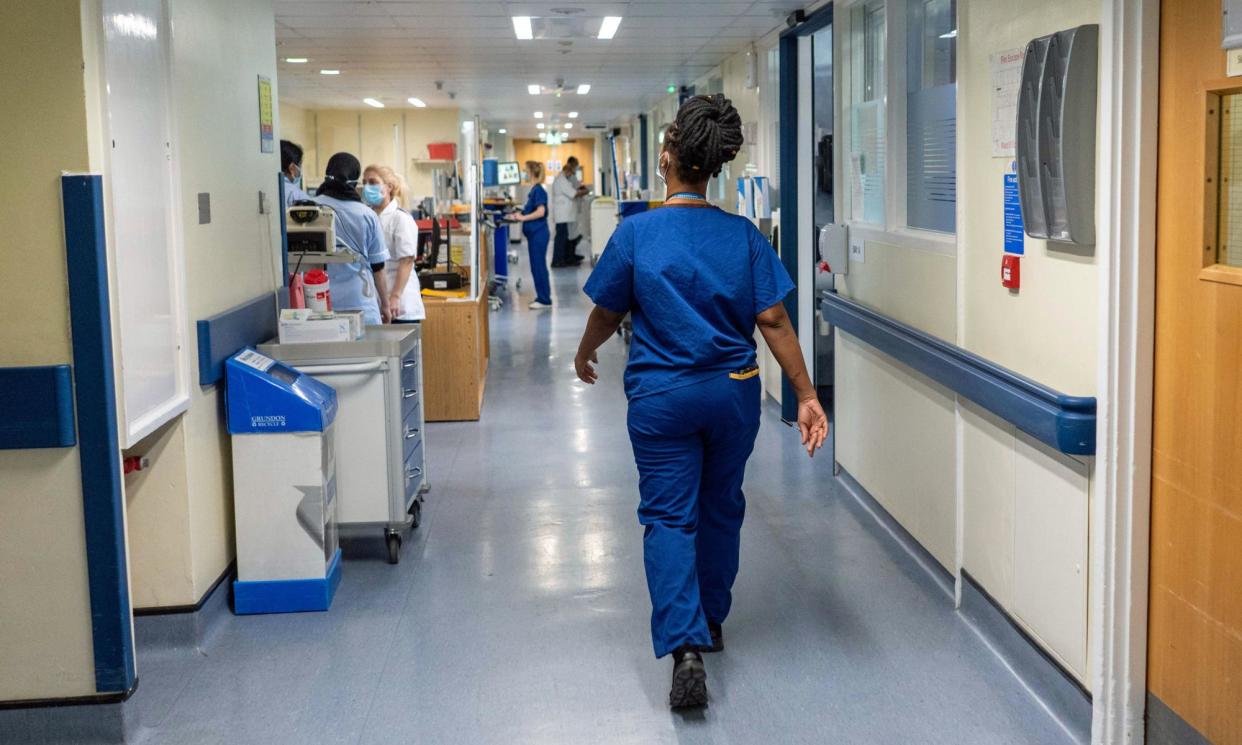Patients left in pain and to die alone amid NHS nurse shortages, survey finds

NHS patients are being left unseen in pain and in some cases to die alone because shifts do not have enough registered nurses, a survey shows.
The Royal College of Nursing said analysis of a survey it carried out showed that only a third of shifts had enough registered nurses on duty.
The union has also gathered testimonies from nurses who talk of always “rushing” and being asked to do more; working in “completely unsafe” levels of care; and having to make “heartbreaking” decisions on who does or doesn’t get seen.
Shortages mean individual nurses are often caring for dozens of patients at a time, the RCN said. It has called for limits on the maximum number of patients for whom a single nurse can be responsible.
Nicola Ranger, the RCN’s acting general secretary and chief executive, said the survey showed that patients were being failed.
“In every health and care setting, nursing staff are fighting a losing battle to keep patients safe,” she said. “Without safety-critical limits on the maximum number of patients they can care for, nurses are being made responsible for dozens at a time, often with complex needs.
“It is dangerous to patients and demoralising for nursing staff.”
The RCN questioned more than 11,000 nursing staff across the UK for its latest ‘last shift’ survey. It asked them about their experiences on their most recent shifts.
The results included:
• In hospital and community settings, 32% of hospital nursing staff and 36% of community nursing staff said their shift had the planned number of registered nurses on it.
• One in three hospital shifts were missing at least a quarter of the registered nurses they needed.
• In the community, almost four in 10 shifts were missing up to half of the planned number of registered nurses.
• Across all settings, 81% of respondents said there wee insufficient numbers of nurses to meet the needs of patient safety.
• In accident and emergency settings, significant numbers of nurses reported having more than 51 patients to care for.
A nurse working in the community in the south-west of England told the survey: “We have days when we have 60 visits unallocated because we don’t have enough staff. Every day we are asked to do more. We are always rushing.”
Related: NHS across UK spends a ‘staggering’ £10bn on temporary staff
Another, also working in the community in the south of England, said: “We leave over 50 patients requiring nursing care unseen on a daily basis due to poor staffing levels. This leads to increases in hospital admissions and death. It is left to us to decide who gets seen and who gets missed, which is heartbreaking.”
A nurse in a West Midlands hospital said: “I have not been able to sit with patients who are dying meaning they have been left to die alone. I have not had the time to make sure patients are fed properly and have adequate drinks.”
A midwife, working in a hospital in Yorkshire, said: “Completely unsafe care due to unacceptable staffing levels. The standards of what is acceptable care for a service to provide have fallen so low, the benchmark is survival.”
The RCN survey follows a recent Channel 4 Dispatches programme, which found that almost 19,000 NHS patients were left waiting in A&E for three days over a 12-month period.
The Dispatches investigation focused on the Royal Shrewsbury hospital and contained harrowing scenes. The RCN says its survey showed “that the scenes in Shrewsbury are commonplace across health and care services”.
Ranger said: “When patients cannot access safe care in the community, conditions worsen and they end up in hospital where workforce shortages are just as severe. This vicious cycle fails staff and patients – it cannot go on.
“We desperately need urgent investment in the nursing workforce but also to see safety-critical nurse-patient ratios enshrined in law. That is how we improve care and stop patients coming to harm.”
The RCN said the survey covered all of the UK but the “vast majority” of respondents were from England.

 Yahoo News
Yahoo News 
